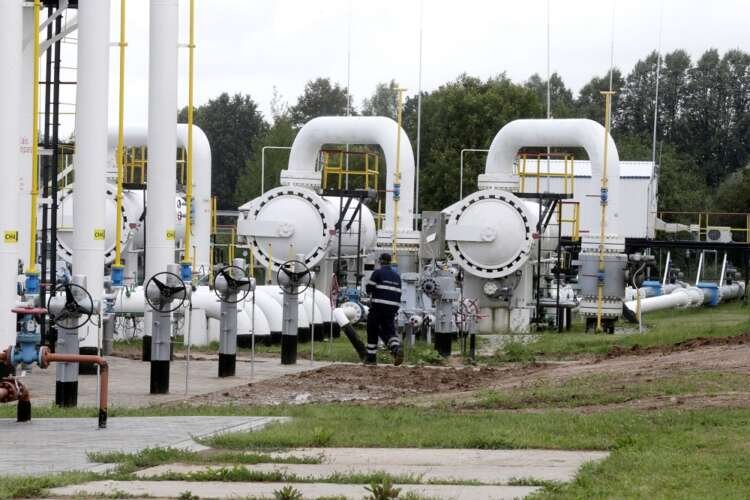EU countries seek ‘solidarity’ fix to urgently fill gas storage


By Kate Abnett
BRUSSELS (Reuters) – European Union countries are wrangling over how to rapidly fill their gas storage ahead of next winter and share the burden of quickly buying large stocks at current sky-high prices.
Europe is facing a race to build a buffer of stored gas ahead of winter, to help cope with potential supply disruptions and reduce the leverage of Russia. The country remains the EU’s top gas supplier even as Europe plans to phase out Russian fuels because of Moscow’s invasion of Ukraine.
The European Commission last month proposed legislation requiring EU countries to fill their gas storage to at least 90% of capacity by Nov. 1 each year from 2023 and 80% this year, by taking “all necessary measures”, including potential compensation for the companies involved in buying the gas.
That has worried some EU countries that are home to gas storage sites, as they fear their companies – potentially with state support – would be forced to buy large volumes of gas at near-record prices, while those in countries with little or no storage would not.
The Netherlands, Austria, Hungary and Latvia are among those concerned, EU officials said.
“A uniform 80%/90% fulfilment requirement would place excessive financial burden on these countries in the interest of others,” a Hungarian official told Reuters.
Filling gas storage from current levels of 26% to 80% would cost at least 65 billion euros ($71.08 billion) at current prices, compared with roughly 10 billion euros in previous years, according to think tank Bruegel.
Those costs would not be shared evenly. Of the EU’s 27 countries, 18 have gas storage sites, of varying sizes. Germany would face a far higher bill to fill its 245TWh capacity, versus Portugal’s 3.6TWh, for example.
Dutch Prime Minister Mark Rutte has said concerned countries would block any proposals that would raise the risk that if they buy gas now to store, they could make a loss if prices drop when they sell the gas in future. France has agreed to ally with them to do so, he said.
“France very explicitly said: in this situation, we will make sure there’s a blocking minority,” Rutte told a press conference after an EU leaders’ summit last month.
Brussels proposed a “burden sharing” system where countries without storage sites must cover 15% of their annual gas use by using storage in other states.
That has not soothed concerns, and countries are now mulling their own proposals – while seeking a swift deal to ensure the rules apply in time to boost storage ahead of winter. The European Parliament, which must also approve the rules, on Tuesday voted to fast-track the proposal so negotiations with EU countries can launch as soon as possible.
Austria wants each country’s filling obligation to be based more closely on its actual gas use, while Hungary supports an obligation for all EU states to fill an amount of storage based on 25% of their gas consumption.
Deciding who is responsible for filling gas storage is complex. Gas stored in one country can be bought and used by companies in another state and, in many cases, gas storage sites in European countries are owned by foreign companies – including Russia’s Gazprom.
Meanwhile, island countries like Malta and Cyprus, which are not linked up to other states’ gas storage, are concerned they will be forced to pay for a gas supply buffer they wouldn’t use, EU officials said.
Other states said they could back a solidarity proposal to address the concerns of states with substantial storage.
“We are ready to play our role for more cross-border solidarity,” said Claude Turmes, energy minister for Luxembourg, which does not have its own storage.
($1 = 0.9144 euros)
(Reporting by Kate Abnett; Editing by John Chalmers and Susan Fenton)
Explore more articles in the Top Stories category











